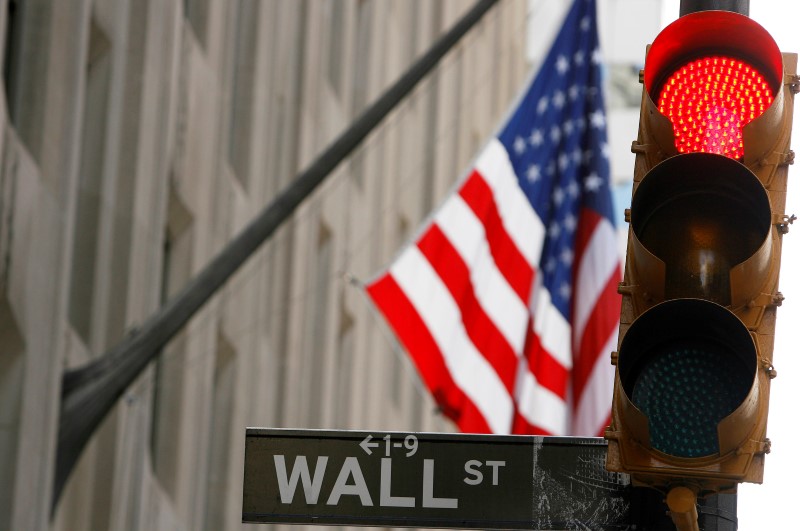×
Select Language
Financial news
Knowledge Hub
US stock futures tumble as Trump imposes trade tariffs
2025-02-03 11:31:02

Investing.com-- U.S. stock index futures fell sharply on Sunday evening after President Donald Trump imposed trade tariffs on Canada, Mexico, and China over the weekend, marking the start of a new global trade war.
Trump launched 25% duties against Canada and Mexico, and an additional 10% duty on China, calling on the countries to stem the flow of illegal drugs and immigrants into the U.S.
All three countries decried the tariffs and vowed retaliation.
S&P 500 Futures slid 1.6% to 5,970.25 points, while Nasdaq 100 Futures fell 2.4% to 21,089.25 points by 18:10 ET (23:10 GMT). Dow Jones Futures fell 1.1% to 44,233.0 points.
Losses in futures also came following a negative session on Wall Street on Friday, as PCE price index data grew as expected for December, indicating that U.S. inflation remained sticky. Trump’s tariffs are expected to add to inflation.
Trump signs executive order imposing tariffs
Trump on Saturday signed an executive order imposing the new trade tariffs, which will take hold from February 4. The tariffs will cover all imports from the three countries, although oil and gas imports from Canada will see a smaller duty.
Trump included a clause that will increase the tariffs should any of the mentioned countries retaliate, and also flagged the potential for greater tariffs, and a universal import duty, in the coming months.
The dollar surged after his move, while the Canadian dollar and the Mexican peso both weakened substantially. Onshore trading in the yuan was closed for the Lunar New Year.
Trump had largely telegraphed the tariffs over the past two weeks, giving markets some hopes that their impact would be priced in. But the sharp drop in futures suggested that this may not be the case, with Wall Street likely set for more weakness after last week’s rout.
Analysts expect the tariffs to drive up U.S. inflation, given that they will be paid largely by domestic importers. Higher inflation diminishes the prospect of more interest rate cuts from the Federal Reserve.
“The resulting surge in U.S. inflation from these tariffs and other future measures is going to come even faster and be larger than we initially expected… the window for the Fed to resume cutting interest rates at any point over the next 12 to 18 months just slammed shut,” analysts at Capital Economics wrote in a note.
Wall St nurses losses on inflation jitters
Sunday’s losses in futures came following a negative session on Wall Street, as data showing an in-line increase in PCE price index inflation rattled risk appetite.
The reading is the Fed’s preferred inflation gauge, and rose further above the central bank’s 2% annual target in December. Sticky inflation further diminishes the chances of more interest rate cuts by the Fed, which had kept rates steady last week and struck a hawkish tone.
The S&P 500 fell 0.5% to 6,040.53 points on Friday, while the NASDAQ Composite fell 0.3% to 19,627.44 points. The Dow Jones Industrial Average fell 0.8% to 44,544.66 points.
Wall Street was also rattled by losses in major technology stocks last week, following the release of China’s DeepSeek artificial intelligence model. This largely overshadowed several major tech earnings, as investors balked at forecasts of outsized capital investment in AI.
Quarterly prints from Alphabet Inc (NASDAQ:GOOGL) and Amazon.com Inc (NASDAQ:AMZN) are due this week, along with a slew of other major firms, including Alibaba Group Holdings (NYSE:BABA), AMD (NASDAQ:AMD), Walt Disney Company (NYSE:DIS), Qualcomm Incorporated (NASDAQ:QCOM), and Uber Technologies Inc (NYSE:UBER).

